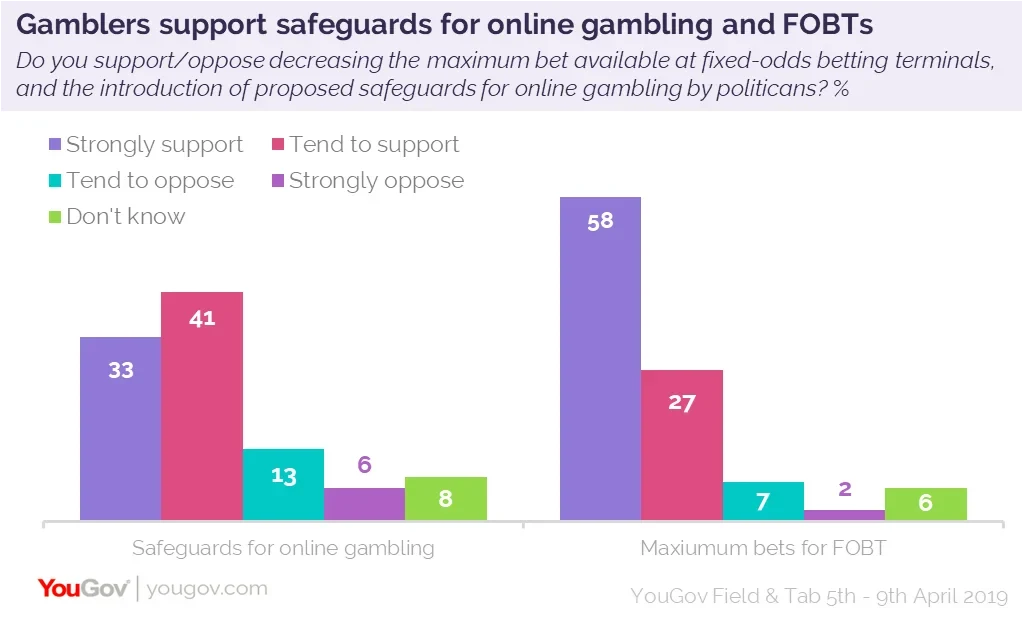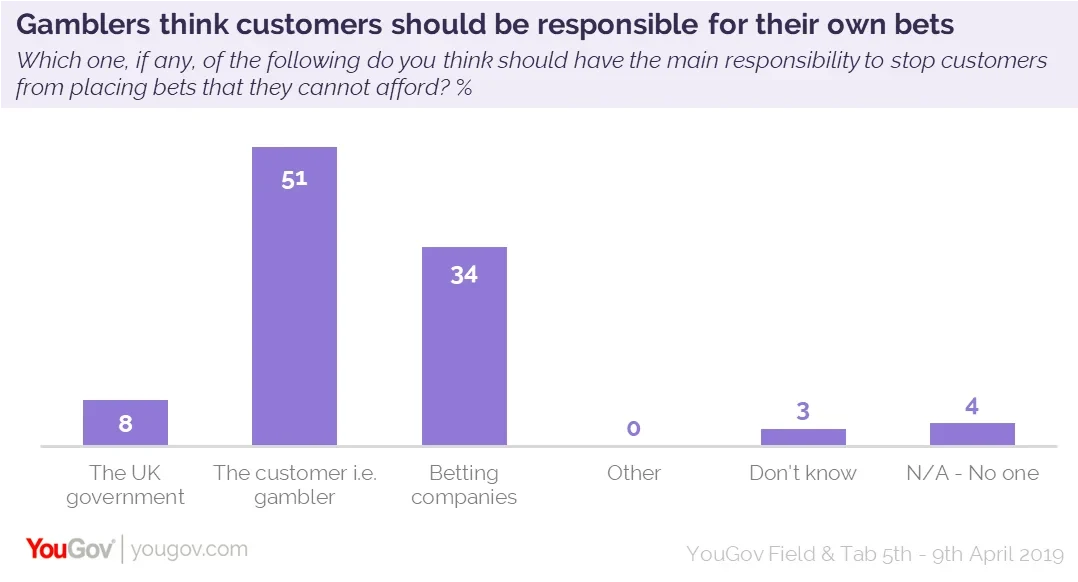New gambling safeguards such as limiting maximum stakes and the speed at which bets can be placed have been proposed to provide more protection for online gamblers. The current 2005 Gaming Act currently only protects problem gamblers offline, in bricks and mortar betting shops.
New YouGov research shows that almost three quarters (74%) of those who have placed a bet online or via a mobile device in the last year support these proposed safeguards, with a third of these strongly supporting the proposition (33%). Only a fifth oppose the idea (19%).
On the 1st April 2019, the maximum bet available at fixed-odds betting terminals was decreased from £100 to £2, and stricter identity and age checks for online gambling are due to come into effect in May. More than eight in ten (85%) of gamblers support these changes, with over half strongly supporting them (58%).

Who is responsible for responsible gambling?
Currently, seven in ten (71%) online gamblers think companies aren’t serious about helping people to gamble responsibly.
However, despite the majority of gamblers supporting the introduction of stricter safeguards, only 8% think the main responsibly to stop customers placing bets they can’t afford lies with the government. Over half (51%) think this lies with the customer themselves, and a third with the betting companies (34%).

Gambling is a divisive subject, and there are occasional calls for the minimum legal age to be raised from 18 to protect those most vulnerable. Three quarters (75%) of regular gamblers think the minimum age should remain at its current level, while one fifth (21%) support an increase.
Many fear that gamblers can develop addictions much more easily when gambling online – 6% of those who regularly gamble online have made a bet they couldn’t afford within the last week, and one in ten (10%) have worried that they may be addicted to gambling at some point.
Despite this, only 20% of gamblers think gambling is the worst vice a person can have, with the majority choosing instead smoking (58%) and 12% pointing to drinking.
Image: Getty






